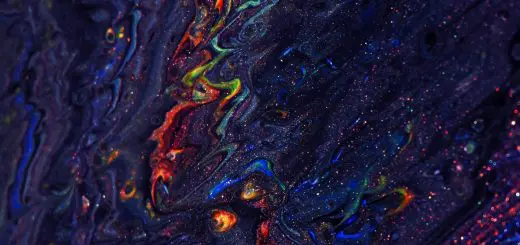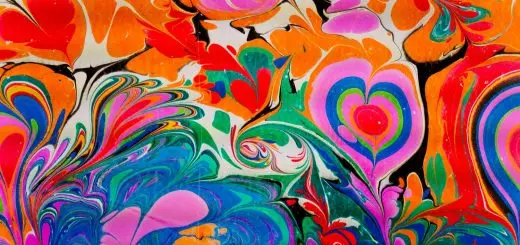Wu Wei in Taoist Arts: Effortless Mastery

Looking for more amazing products? Check out our online store and explore our collection here! Happy shopping!
Before diving in, please note: This post is for informational purposes only. If you’d like to know more about how we approach topics, feel free to check out our friendly Disclaimer Page.
Hey there, amazing readers! 
We’re committed to delivering quality posts, and your support (even just sticking around despite the ads) means everything to us. So, bear with us, and thanks for helping us keep the good vibes rolling. Now, on to the fun stuff!
TRANSLATE BUTTON AT THE END OF THE ARTICLE
A Quick Overview
Wu Wei, a concept deeply ingrained in Taoist philosophy, emphasizes the idea of effortless action and natural spontaneity.
It is the art of non-doing, where one learns to go with the flow of life and allow things to unfold naturally without force or resistance.
In Taoism, Wu Wei is seen as the key to achieving harmony with the universe and attaining a state of inner peace and balance.
This article delves into the principles of Wu Wei in Taoist arts, exploring how it can be applied in various practices to cultivate effortless mastery.
Understanding Wu Wei in Taoist Philosophy
Wu Wei, often translated as "non-action" or "effortless action," is a central tenet in Taoist philosophy.
It is the idea of aligning oneself with the natural flow of the universe and allowing things to happen spontaneously.
Instead of trying to control every aspect of life, Taoists believe in letting go of attachments and desires, allowing events to unfold naturally without interference.
Wu Wei is about being in tune with the rhythm of life, moving with grace and ease, and finding harmony in the midst of chaos.
The Concept of Effortless Mastery in Taoism
Effortless mastery in Taoism is the ability to achieve a state of flow where actions are carried out effortlessly and efficiently.
It is the art of doing without doing, where one acts without striving or forcing outcomes.
Through Wu Wei, practitioners can tap into their innate abilities and talents, allowing them to perform at their highest potential with ease and grace.
Effortless mastery is about being in a state of relaxed concentration, where one is fully present in the moment and able to respond intuitively to the needs of the situation.
Applying Wu Wei in Taoist Arts
Wu Wei can be applied to various Taoist arts, including Tai Chi, Qigong, meditation, and martial arts.
In Tai Chi, for example, practitioners learn to move with fluidity and grace, allowing the body to respond effortlessly to the flow of energy.
In Qigong, individuals cultivate awareness of their breath and energy flow, learning to harmonize their movements with the natural rhythms of the body.
Through meditation, practitioners can quiet the mind and cultivate a state of inner stillness, allowing intuitive insights to arise effortlessly.
How to Achieve Effortless Mastery
Achieving effortless mastery in Taoist arts requires practice, patience, and a deep understanding of the principles of Wu Wei.
One must learn to let go of the ego and surrender to the natural flow of life, trusting in the process and embracing uncertainty.
By cultivating mindfulness and presence, individuals can tap into their inner wisdom and intuition, allowing them to act in alignment with the universe.
Through consistent practice and self-reflection, one can gradually develop the ability to flow effortlessly with the currents of life.
The Importance of Balance in Wu Wei
Balance is key to achieving Wu Wei in Taoist arts.
Just as yin and yang represent the balance of opposites in Taoism, practitioners must find equilibrium in their practice, balancing effort with relaxation, movement with stillness, and action with non-action.
By finding the middle way and avoiding extremes, individuals can cultivate a sense of harmony and flow in their practice.
Balance allows for the natural unfolding of events without resistance, leading to a state of effortless mastery.
Embracing Spontaneity in Taoist Practices
Spontaneity is an essential aspect of Wu Wei in Taoist practices.
It is the ability to respond intuitively to the present moment without preconceived notions or attachments.
By letting go of rigid expectations and allowing things to unfold organically, practitioners can tap into their creative potential and find inspiration in the spontaneity of life.
Embracing spontaneity allows individuals to break free from the constraints of the mind and connect with the flow of the universe, leading to a deeper sense of fulfillment and joy.
Cultivating Mindfulness for Wu Wei
Mindfulness plays a crucial role in cultivating Wu Wei in Taoist arts.
By being fully present in the moment and aware of one’s thoughts, emotions, and sensations, individuals can tap into their inner wisdom and intuition.
Mindfulness allows practitioners to observe the natural flow of life without judgment or attachment, fostering a sense of acceptance and peace.
Through mindfulness practices such as meditation and breathwork, individuals can develop the ability to act with clarity and purpose, leading to effortless mastery in their chosen art.
The Role of Intuition in Effortless Mastery
Intuition is a powerful tool in achieving effortless mastery in Taoist arts.
By trusting in one’s intuition and inner guidance, practitioners can make decisions that are in alignment with the flow of the universe.
Intuition allows individuals to tap into their subconscious mind and connect with their higher self, leading to inspired action and creative expression.
By honing their intuition through mindfulness practices and self-awareness, practitioners can cultivate a deeper sense of connection to the world around them and achieve a state of effortless flow in their practice.
Overcoming Struggle Through Wu Wei
Wu Wei offers a way to overcome struggle and resistance in Taoist arts.
Instead of trying to force outcomes or control every aspect of a situation, practitioners learn to surrender to the natural flow of life and trust in the process.
By letting go of the need for perfection and embracing imperfection, individuals can release the burden of struggle and find ease in their practice.
Through Wu Wei, practitioners can learn to navigate challenges with grace and resilience, allowing them to flow effortlessly with the currents of life.
Finding Harmony Through Taoist Arts
Taoist arts provide a path to finding harmony within oneself and with the world around them.
By practicing Wu Wei in Tai Chi, Qigong, meditation, and other Taoist arts, individuals can cultivate a sense of balance, peace, and unity.
Through the practice of harmonizing body, mind, and spirit, practitioners can align themselves with the flow of the universe and experience a profound sense of interconnectedness.
Taoist arts offer a way to find harmony in the midst of chaos, allowing individuals to tap into their inner resources and cultivate a sense of well-being and vitality.
Letting Go of Control for Wu Wei
One of the key principles of Wu Wei is letting go of control and surrendering to the natural flow of life.
By releasing the need to manipulate outcomes and trusting in the process, individuals can free themselves from the burden of trying to force results.
Letting go of control allows practitioners to embrace uncertainty and change, leading to a deeper sense of peace and acceptance.
Through the practice of Wu Wei, individuals can learn to trust in the wisdom of the universe and allow things to unfold in their own time, without interference or resistance.
Integrating Wu Wei into Daily Life
Integrating Wu Wei into daily life is essential for cultivating effortless mastery in Taoist arts.
By applying the principles of non-action, spontaneity, balance, and mindfulness to everyday activities, individuals can learn to navigate life with ease and grace.
Practicing Wu Wei in interactions with others, work, and personal endeavors can lead to a deeper sense of fulfillment and connection to the world around them.
By letting go of attachments and expectations, individuals can cultivate a sense of freedom and authenticity, allowing them to flow effortlessly with the currents of life.
Conclusion
In conclusion, Wu Wei in Taoist arts offers a profound way to cultivate effortless mastery and achieve harmony with the universe.
By embracing the principles of non-action, spontaneity, balance, and mindfulness, practitioners can tap into their innate wisdom and intuition, allowing them to flow effortlessly with the rhythm of life.
Through consistent practice and self-reflection, individuals can overcome struggle and resistance, finding peace and balance in the midst of chaos.
By integrating Wu Wei into daily life, individuals can experience a deeper sense of connection and fulfillment, leading to a life of effortless mastery and harmony.

The Enlightenment Journey is a remarkable collection of writings authored by a distinguished group of experts in the fields of spirituality, new age, and esoteric knowledge.
This anthology features a diverse assembly of well-experienced authors who bring their profound insights and credible perspectives to the forefront.
Each contributor possesses a wealth of knowledge and wisdom, making them authorities in their respective domains.
Together, they offer readers a transformative journey into the realms of spiritual growth, self-discovery, and esoteric enlightenment.
The Enlightenment Journey is a testament to the collective expertise of these luminaries, providing readers with a rich tapestry of ideas and information to illuminate their spiritual path.
Our Diverse Expertise
While our primary focus is on spirituality and esotericism, we are equally passionate about exploring a wide range of other topics and niches 

To ensure we provide the most accurate and valuable insights, we collaborate with trusted experts in their respective domains 
Our blog originally focused on spirituality and metaphysics, but we’ve since expanded to cover a wide range of niches. Don’t worry—we continue to publish a lot of articles on spirituality! Frequently visit our blog to explore our diverse content and stay tuned for more insightful reads.
Hey there, amazing reader! 
Check out our store here and take a peek at some of our featured products below! Thanks for being awesome!











